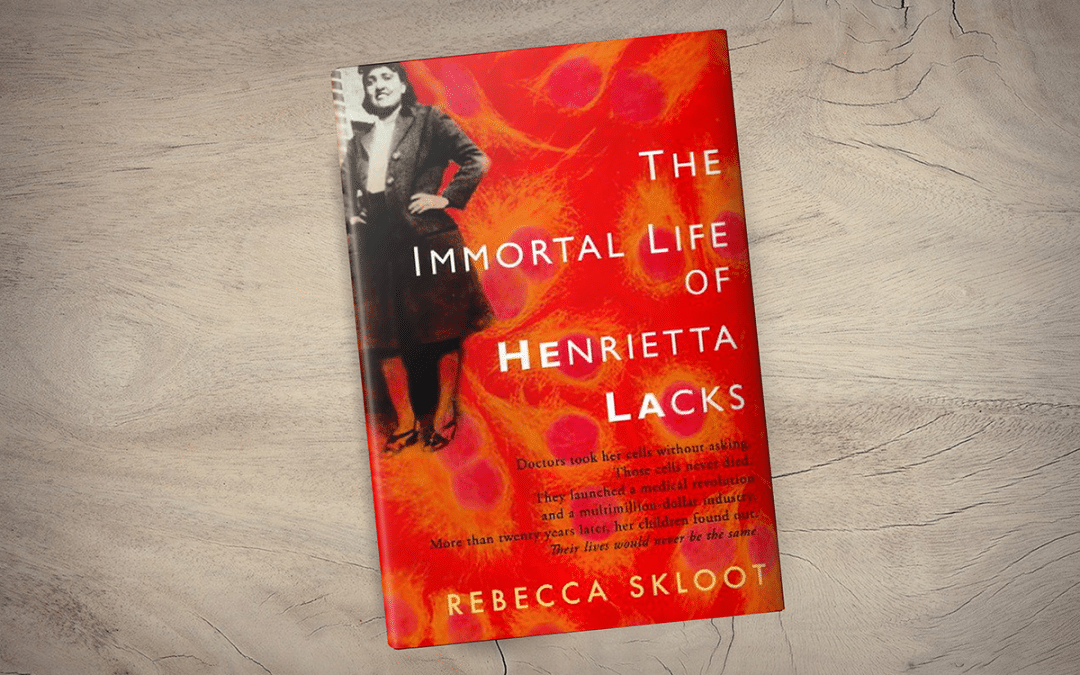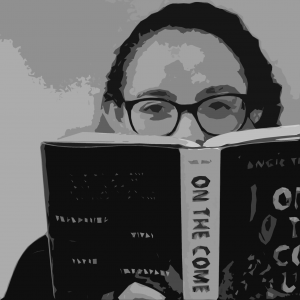By: Rebecca Skloot
I’m thinking about changing the rating system on this blog to reflect across categories. That is because this book is so important, and the story is so compelling, but I was a little weirded out by the author the whole time, and it took away from my overall feelings about the book.
Henrietta Lacks is the woman whose cancerous cells were the first to be kept alive (seemingly) eternally once removed from her body. The major problem here: Henrietta was a young black woman in the 1950s, and her cells were taken and experimented on without her permission, consent, or even knowledge. Second major problem here: After her death from cervical cancer (which occurred only months after her cells were taken) nobody bothered to inform her family that her cells were still alive and thriving and making major medical history.
Henrietta left behind 5 children – Lawrence, Elsie, Sonny, Deborah, and Zakkariya. She also left behind a husband and a lot of cousins and siblings. She was only 31 when she died. The story is told mostly in collaboration with Henrietta’s youngest daughter, Deborah, who is the child that cared the most about her mother’s story being told the right way. The story follows what is known of Henrietta’s life, her death, the lives of her children, grandchildren, and great grandchildren, the science behind the HeLa cells, and the ethics of cell tissue cultures, and if cells belong to people once they are removed from the host body (the answer here is oddly: No)
The stories were done really well, the science was super interesting, the ethics were challenging and hard to conceive (but well explained by the author). Yet, a major theme throughout the book was that Henrietta’s children and husband were tired and suspicious of reporters taking her mother’s story. And so I felt like the author kept jabbing at an emotionally vulnerable family until they finally gave up their defenses and let her write the story. She kept stating that the family was skeptical of white people, but then explaining that she wasnt like “those other white people” but to me, I wasnt so sure. I read a review on this book at one point, that said, “for a book about questionable ethics, its never quite clear if SHE is being ethical” (or some similar sentiment) and I feel that.
THINGS I THINK THE AUTHOR DID WELL: All Deborah wanted in the entire world was (well, her mother really, but also) to understand the science of what her mother went through. Deborah was heartbreakingly lost in this world, and felt that everytime scientists and doctors asked the family for information, they neglected to explain so that she really understood, the science behind it all. Rebecca Skloot included Deborah along the way and explained what each new detail meant. She introduced Deborah to scientists who worked with HeLa, and even brought her to a lab to see the HeLa cells. This was a true gift to a woman whose entire life had been dictated by loosing her mother, and then by finding out that her mother was responsible for major medical advances without anyone knowing.
In conclusion: this was a great story told in a compelling way, yet something about the means to get to the story threw me off.


